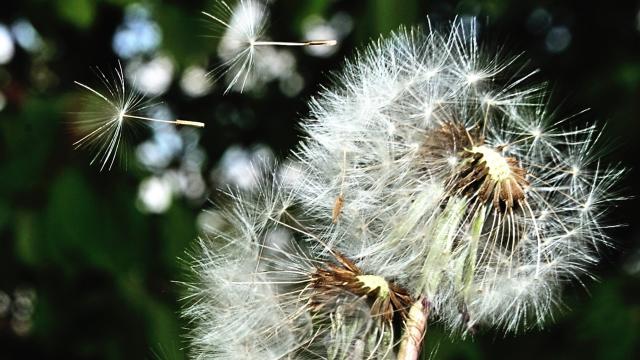A new study out Monday is the latest to suggest that climate change is already making people’s lives worse, this time for those allergic to pollen. The findings indicate show pollen season in North America has gotten measurably longer and that pollen has become more plentiful over the past three decades, due in part to a warmer climate.
There are different types of pollen from plants and trees that become prevalent at different times of the year. But typically, the pollen season starts in early spring and runs through the summer and early fall. These months are associated with an uptick in seasonal allergies, which is also known as hay fever or allergic rhinitis. Sufferers experience cold-like symptoms like a stuffy or runny nose, watery eyes, along with itching around their nose and roof of the mouth.
The study’s researchers looked at data from pollen count stations across the U.S. and Canada, stretching between 1990 to 2018. During those years, they found that the pollen season has significantly changed. Compared to 1990, the average pollen season in an area now starts about 20 days earlier, runs 10 days longer, and pumps out 21% more pollen. While this change was seen everywhere, areas like Texas and the the midwestern U.S. saw the largest increases in total pollen over those years.
[referenced id=”1137252″ url=”https://gizmodo.com.au/2018/11/climate-change-is-going-to-make-ragweed-allergies-even-worse-study-finds/” thumb=”https://gizmodo.com.au/wp-content/uploads/2018/11/13/k37j9x2taj3aggsbyzwc.jpg” title=”Climate Change Is Going To Make Ragweed Allergies Even Worse, Study Finds” excerpt=”There’s no shortage of horrible things that will become more common in the near future due to climate change, like disease-causing ticks, to name a few. But new research published Thursday in PLOS-One adds another annoyance to the list: Allergy-causing ragweed.”]
Some studies have found evidence in the lab that warmer temperatures should lead to worse pollen seasons. Others have predicted that certain allergy-causing plants like ragweed will become more widespread over the next few decades. But the new findings, published in the Proceedings of the National Academy of Sciences, is some of the first research to explicitly tie climate change to worse pollen seasons, and to suggest that it’s making things worse here and now.
“Our results indicate that human-caused climate change has already worsened North American pollen seasons,” the authors wrote.
Climate change isn’t the only factor that’s making the pollen season more of a nightmare for allergy sufferers in recent years, they noted. But according to their model, it’s likely that climate change is primarily responsible for about half of the added days seen over this time, along with 8% of the heavier pollen counts. They also found that climate change has had a larger contribution on the pollen season as the years have gone on, which doesn’t exactly bode well for what’s ahead.
“It is likely that climate change will have even more of an impact on pollen seasons and respiratory health in the near future,” study author William Anderegg, a biologist at the University of Utah, told Gizmodo via email. “We saw in our study that the impacts of climate change were more pronounced over the 2003-2018 period as compared to the full 1990-2018 period. So, at least for the next decade or two, we very much expect this trend and the health impacts to continue.”
Of course, a lot more pollen every year isn’t the only thing that climate change threatens to bring along when it comes to human health. In the U.S., experts fear that longer and warmer seasons will raise the risk of numerous health problems, from tickborne illnesses like Lyme disease to heart attacks and heat stroke to the spread of tropical diseases as warming allows them to spread poleward.
